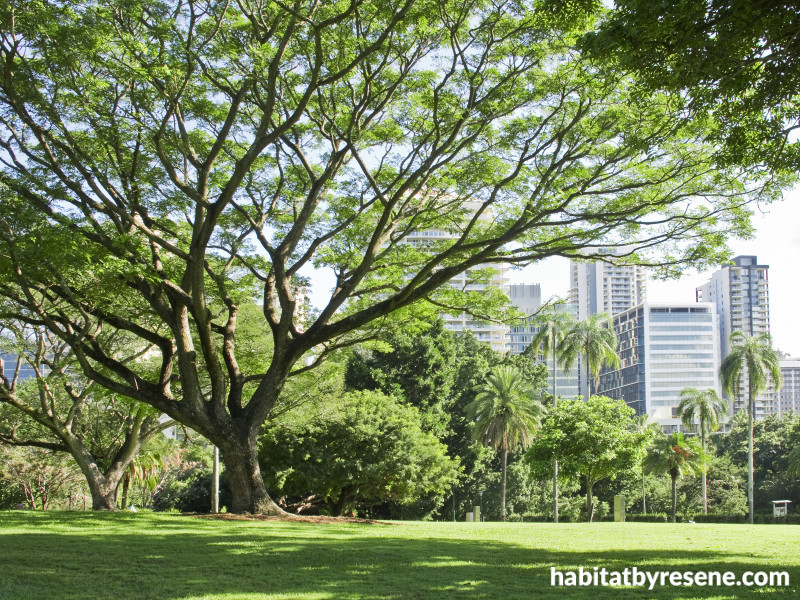
Forget air con – plant more trees
29 Jan 2015
As the holidays end and we head back to home and the office, more and more air conditioners will be turned on, sucking through electricity. But are we missing an obvious leafy solution?
Plants and trees provide shade and act as natural air conditioners. By simply adding one plant for every three people in a household, you can improve air quality by reducing dust particles by 20%, airborne bacteria by up to 50% and mould spores by up to 60%.
Sadly trees are being largely ignored in housing and urban development, which is causing an urban heat island effect. This is when buildings and footpaths absorb the sun’s heat and then radiate it back out. Temperature increases of up to three degrees are common, with increases of up to 12-15 degrees in extreme cases.
Apart from providing shade, trees cool temperatures through the process of transpiration, in which water is absorbed through the roots and pushed into the air via tiny pores in their leaves. Think of them as leafy, misty fans for our cities.
It’s no secret that trees also make areas more pleasant, improve water quality and encourage us to get outside for exercise. Speaking of which, the high UV levels in New Zealand mean we should be seeking shade when exercising outdoors.
Clearly there’s a need to emphasise trees in urban planning and design, to ensure towns and cities are climate resilient, healthy and enjoyable to live in. But what can we do as homeowners?
Rather than splash out on expensive shade cloths and sails for shade cover, why not purchase trees and plant them in your backyard? Trees won’t fade or tear, and with a bit of tender loving care they’ll continue to grow and provide further shade.
So head down to your local nursery or garden centres to choose from their range of advanced plants and trees. Then sit back, relax and enjoy the shade and cleaner air provided by Mother Nature’s air conditioners.
Greenlife Matters is a Nursery & Garden Industry New Zealand programme. To find out more visit www.facebook.com/greenlifematters.
Also see www.nginz.co.nz and www.gogardening.co.nz.
Published: 29 Jan 2015




